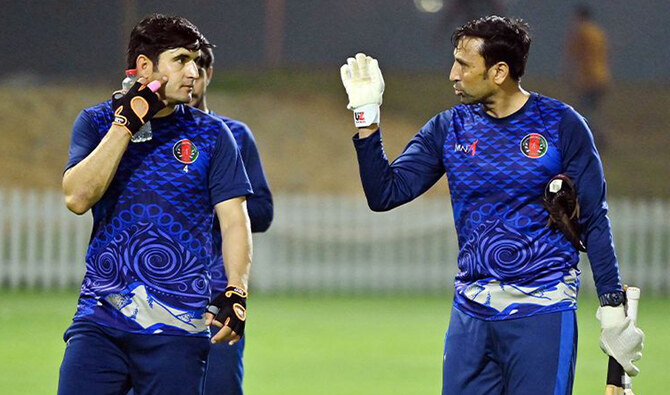LONDON: World cricket’s governing body is coming under increasing scrutiny for its stance on Afghanistan’s inclusion in the upcoming Champions Trophy tournament, despite the Taliban’s restrictions on women’s rights and sports participation.
The International Cricket Council has so far resisted calls to ban Afghanistan’s men’s team or press the Taliban regime to uphold its own rules surrounding the establishment of a women’s cricket team, citing a strategy to influence change through engagement.
The ICC’s policy requires nations granted Test-playing status, which Afghanistan was given in 2017, to support women’s cricket.
However, Afghanistan was accepted as a full member without an already functional women’s cricket program, citing religious and cultural reasons.
Despite efforts by the Afghanistan Cricket Board to establish a women’s team in 2020 “adhering to the traditional Afghan and Islamic values,” the Taliban’s resurgence in 2021 halted progress, with women and girls increasingly banned from sports and public life since.
More than 160 British MPs and peers have recently called for the England and Wales Cricket Board to boycott their match against Afghanistan, set to be played next month in Pakistan, Sky News reported.
Prime Minister Keir Starmer refused to commit to such action, but said: “The Department for Culture, Media and Sport is in touch with our international counterparts on this issue. I welcome the England and Wales Cricket Board making strong representations to the International Cricket Council on Afghanistan’s women’s cricket team.”
South Africa’s Sports Minister Gayton McKenzie has also supported calls for a boycott, but Cricket South Africa has deferred to the ICC, emphasizing adherence to tournament regulations.
However, British Culture and Sport Secretary Lisa Nandy has rejected the idea of a boycott, stating that such actions could penalize athletes and alienate fans.
Speaking to BBC Breakfast, Nandy said: “I’m instinctively cautious about boycotts in sports. I think they deny sports fans the opportunity that they love, and they can also very much penalize the athletes and the sports people who work very, very hard to reach the top of their game and then they’re denied the opportunities to compete.
“They are not the people that we want to penalize for the appalling actions of the Taliban against women and girls,” she added.
Instead, Nandy pointed to diplomatic measures to bring about change, highlighting past UK efforts to withhold symbolic support at sporting events, such as avoiding dignitary attendance at the Winter Olympics in China.
“When China hosted the Winter Olympics, I was very vocal, many of us were very vocal about making sure that we didn’t send dignitaries to that event, that we didn’t give them the PR coup that they were looking for when they were forcibly incarcerating the Uighurs in Xinjiang,” she said.
The ICC has reiterated its commitment to engaging with Afghanistan to foster inclusivity in cricket.
“The ICC remains closely engaged with the situation in Afghanistan and continues to collaborate with our members,” a spokesperson told Sky News.
“We are committed to leveraging our influence constructively to support the Afghanistan Cricket Board in fostering cricket development and ensuring playing opportunities for both men and women in Afghanistan.
“The ICC has established an Afghanistan Cricket Task Force, chaired by deputy chairman Mr. Imran Khwaja, who will lead the ongoing dialogue on this matter,” they added.
However, the ICC’s approach has drawn sharp criticism from Afghan women’s rights activists.
Khalida Popal, former captain of Afghanistan’s women’s football team, expressed disappointment in the governing bodies’ lack of action.
“The governing bodies have failed to stand by their own policies. There’s clear gender discrimination in sport, and they’ve ignored the women of Afghanistan,” she told Sky News.
England’s match against Afghanistan remains scheduled, and the ICC continues to engage with the ACB. But the Champions Trophy, set to take place next month, has become a focal point for global scrutiny of Afghanistan’s policies and the ICC’s role in upholding its principles.

























